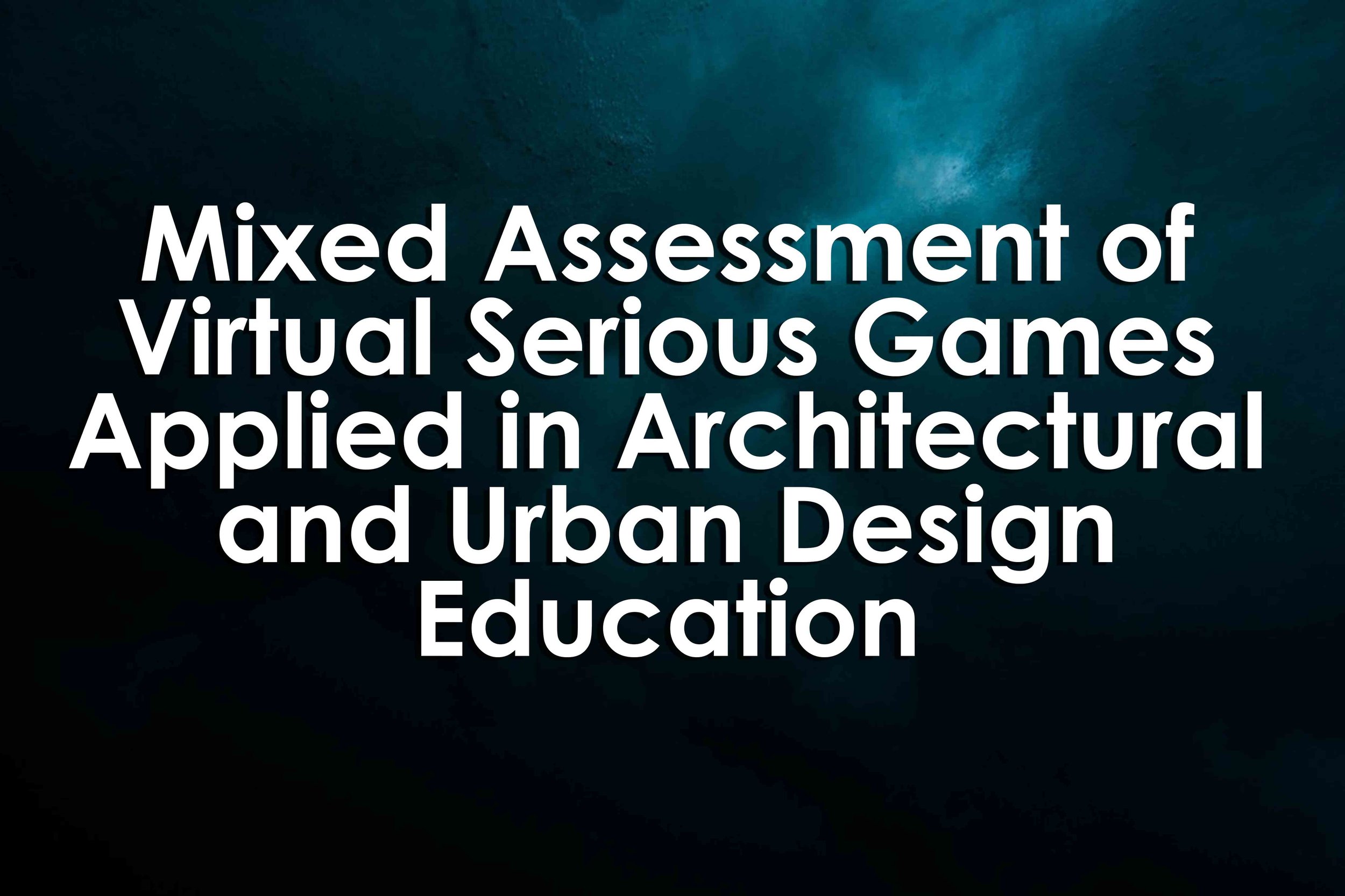Mixed Assessment of Virtual Serious Games Applied in Architectural and Urban Design Education
Mixed Assessment of Virtual Serious Games Applied in Architectural and Urban Design Education
Mixed Assessment of Virtual Serious Games Applied in Architectural and Urban Design Education
By David Fonseca, Janaina Cavalcanti, Enric Peña, Victor Valls, Mónica Sanchez-Sepúlveda, Fernando Moreira, Isidro Navarro and Ernesto Redondo
Abstract
"User modeling in gamified educational systems is a contemporary challenge. In particular, modeling the students' flow experience (i.e., challenge-skill balance, action-awareness merging, clear goals, unambiguous feedback, total concentration on the task at hand, sense of control, loss of self-consciousness, transformation of time, and autotelic experience) during a gamified system usage is highly challenging. It is because measurement instruments usually are invasive, removing the users from the flow experience and/or cannot be applied massively (e.g., participant observation, questionnaires or electroencephalogram). We faced this challenge by conducting a data-driven study (N = 23), where we used a robust statistical method (i.e., partial least squares path modeling) to model the students' flow experience, based on their interaction data (e.g., number of mouse clicks) in a gamified educational system. The main results indicate a relationship between the interaction logs and four flow experience dimensions. Our finds contribute to the area of gamified educational systems, through the students' flow experience modeling. Finally, based on our results, we also provided a series of recommendations for future studies.”
Reference
Fonseca, D., Cavalcanti, J., Peña, E., Valls, V., Sanchez-Sepúlveda, M., Moreira, F., . . . Redondo, E. (2021, April 29). Mixed assessment of virtual serious games applied in architectural and Urban Design Education. Retrieved December 02, 2021, from https://www.mdpi.com/1424-8220/21/9/3102
Keyword
Virtual reality, interactive systems, serious games, mixed assessment, user experience, user profile, usability, learning implementation, architecture and urban projects, decision making, research

